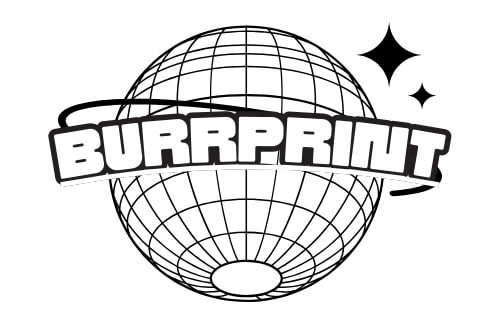Leading e-commerce certifications in 2025 combine marketplace-specific credentials with digital marketing expertise. Amazon’s Seller University and Walmart’s Marketplace certifications provide essential platform training. Digital marketing programs like Google Analytics 4 and Meta Blueprint offer critical skills in customer tracking and targeting. These certifications emphasize conversion optimization, predictive analytics, and data-driven strategies. The following extensive guide explores the most valuable credentials for e-commerce success.
Key Takeaways
- Amazon’s Seller University certification remains essential for FBA success, covering inventory management and algorithmic optimization for maximum marketplace visibility.
- Meta Blueprint certification provides cutting-edge social commerce strategies and advanced audience targeting techniques for e-commerce growth.
- Google Analytics 4 certification offers crucial customer journey tracking and conversion optimization skills for modern e-commerce platforms.
- HubSpot’s Marketing certification teaches automated sales funnels and inbound strategies specifically designed for online retail success.
- Walmart Marketplace certification becomes increasingly valuable as the platform expands, offering essential compliance tools and marketplace-specific requirements.
Top Marketplace-Specific E-Commerce Certifications
While general e-commerce certifications provide broad knowledge, marketplace-specific credentials offer specialized training for selling on individual platforms.
Amazon’s Seller University certification has emerged as essential for FBA sellers, covering inventory management, advertising, and algorithm optimization.
Walmart’s Marketplace certification equips vendors with platform-specific tools and compliance requirements, while Etsy’s Seller Education program focuses on handmade and vintage item marketing.
Shopify’s Partner certification validates expertise in store setup, theme customization, and app integration.
eBay’s Advanced Selling certification emphasizes auction strategies and customer service excellence.
These platform-specific certifications help sellers master unique marketplace features, policies, and best practices, leading to improved performance metrics and increased sales potential within each ecosystem.
Essential Digital Marketing and Sales Analytics Programs
Because success in e-commerce requires mastery of digital marketing and analytics, leading certification programs have emerged to address these essential skills. These thorough programs blend fundamental marketing concepts with data-driven decision-making tools essential for modern e-commerce success.
| Program | Key Focus Areas |
|---|---|
| Google Analytics 4 | Customer journey tracking, conversion optimization |
| Meta Blueprint | Social media advertising, audience targeting |
| HubSpot Marketing | Inbound strategies, automation workflows |
| Salesforce Analytics | CRM metrics, sales performance tracking |
Top programs emphasize practical applications through real-world case studies and hands-on projects. Professionals gain expertise in critical areas such as conversion rate optimization, customer segmentation, and predictive analytics. These certifications are regularly updated to reflect emerging trends and technological advancements in the e-commerce landscape.
FAQ
What Are the Typical Job Roles Available After Completing an E-Commerce Certification?
After completing an e-commerce certification, professionals can pursue roles like E-commerce Manager, Digital Marketing Specialist, Online Store Manager, Supply Chain Coordinator, or Marketplace Analyst.
Other positions include Product Manager, Customer Experience Specialist, E-commerce Operations Manager, and Digital Business Consultant.
Some may work as E-commerce Platform Specialists, focusing on platforms like Shopify, WooCommerce, or Magento.
How Long Does It Take to Start Earning Money After Course Completion?
The timeline to start earning money after completing an e-commerce course varies greatly.
Some graduates can begin generating income within 1-3 months by starting their own online stores or freelancing.
Others may need 3-6 months to secure traditional employment in established companies.
Success depends on factors like market conditions, individual effort, networking abilities, and practical application of learned skills.
Can I Pursue E-Commerce Courses While Working Full-Time?
Working professionals can effectively pursue e-commerce courses while maintaining full-time jobs.
Many programs offer flexible learning schedules, self-paced modules, and evening/weekend classes specifically designed for busy professionals.
Online learning platforms provide 24/7 access to course materials, allowing students to study during lunch breaks, after work, or on weekends.
The key is selecting programs that align with individual time constraints and work commitments.
What Technical Equipment and Software Do I Need for These Courses?
Most e-commerce courses require basic technical equipment: a reliable computer (desktop or laptop), stable internet connection, and updated web browser.
Essential software typically includes Microsoft Office or Google Workspace for documentation, and basic photo editing tools.
Some advanced courses may require specific e-commerce platforms like Shopify, WooCommerce, or specialized analytics tools.
A webcam and microphone are necessary for virtual classes.
Are There Any Age Restrictions for Enrolling in E-Commerce Certification Programs?
Most e-commerce certification programs do not have strict age restrictions, though participants typically must be at least 16-18 years old.
Some programs require enrollees to have completed high school or equivalent education.
Advanced certifications may have additional prerequisites like work experience or prior qualifications.
Online platforms often allow younger students to enroll with parental consent, while university-affiliated programs follow standard admission age requirements.
Conclusion
Like a master craftsman selecting the finest tools for their workshop, aspiring e-commerce professionals must carefully choose their educational path. These certifications and courses serve as the compass and map in the vast digital marketplace wilderness. As marketplaces evolve and technology advances, those who arm themselves with the right knowledge today will navigate tomorrow’s e-commerce landscape with confidence and skill.







